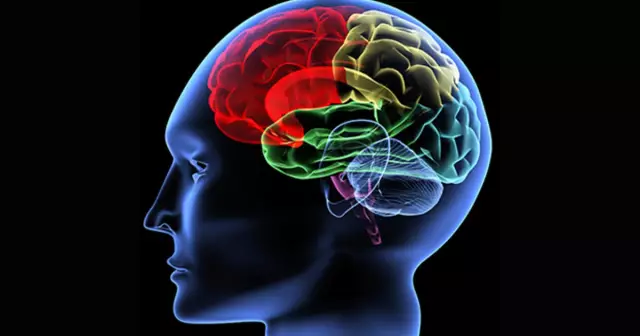- Author Rachel Wainwright wainwright@abchealthonline.com.
- Public 2023-12-15 07:39.
- Last modified 2025-11-02 20:14.
5 common myths about doctors
We all get sick from time to time. And each of us wants to receive help from a person whom he trusts during this difficult period. Unfortunately, patients know surprisingly little about those who treat them. Myths about doctors are widespread in our society, but mostly they are not true.
Today we decided to dispel the most famous of these misconceptions.

Source: depositphotos.com
Doctors take the Hippocratic Oath
The ancient Greek oath of a health worker, known as the "Hippocratic Oath", included provisions that currently seem completely inappropriate (suffice it to mention the points regarding the provision of medical care to slaves). Now, in every country in the world, doctors take a special oath, drawn up taking into account local specifics and religious customs.
Graduates of domestic medical universities and colleges have been taking the Oath of a Russian Doctor since the early 1990s. This is not just a set of moral rules and obligations: the text of the "Oath …" is part of the federal law on the protection of citizens' health (dated November 21, 2011 No. 323-FZ, article 71).
Doctors rarely get sick
In reality, the situation is exactly the opposite. Doctors get sick more often than representatives of other professions. The main reason for this phenomenon is considered to be stress: the official duties of health workers are associated with the daily solution of serious problems and enormous responsibility. Doctors are forced to live in constant stress, which has a bad effect on their health. It has been found that every fifth Russian doctor has sleep disorders, and every tenth is periodically on the verge of depression.
The specific attitude of physicians to treatment also plays a negative role. Doctors tend to underestimate the danger of situations in which they find themselves. Usually they are in no hurry to seek help and often start diseases.
In addition, doctors often suffer from ailments directly related to their professional activities. The first places in the list of such diseases are occupied by viral hepatitis, skin lesions and bronchial asthma.
According to statistics, no more than 2% of Russian doctors are absolutely healthy. Among doctors who have reached the age of 50, mortality from diseases is one third higher than the average in the corresponding age group.
A qualified doctor is never wrong
A doctor is the same person as all of us. A qualified and conscientious doctor may have errors due to lack of information, lack of necessary diagnostic equipment (and then these are "conscientious delusions") and simply because of banal fatigue.
It happens that therapists prescribe the wrong drugs or give incorrect recommendations regarding their intake. Surgical misses are much less common. Disruptions in the work of anesthesiologists, when anesthesia is administered to patients without taking into account the likelihood of individual intolerance, are not excluded. The percentage of errors in obstetric and dental practice is quite high.
Doctors are highly paid specialists
The basic salary of a domestic public sector doctor (not to mention the average medical staff) is very low. Typically, a variety of allowances are applied to the salary, which vary from region to region. If local authorities seek to reduce budget expenditures, this primarily affects health workers. The monthly salary of a doctor is calculated according to a complex system and largely depends on the work of the head of a medical institution.
Doctors specially write in incomprehensible handwriting
Of course, this is not the case. However, the profession of a doctor leaves a certain imprint on his handwriting. Specialists identify several reasons for the "unreadability" of medical personnel records:
- the need to store a large amount of information on paper. Because of this, the doctor's handwriting begins to deteriorate already during the period of study at the university;
- gaining experience and developing professional intuition. Over time, the doctor is increasingly faced with the characteristic signs of diseases and recognizable diagnoses. The handwriting also reflects this: the so-called threadiness of the outline appears. Each letter written loses its distinctness, and the entire record becomes less intelligible;
- the emergence of emotional alienation. The doctor (fortunately, not everyone) seeks to psychologically protect himself from the flow of negativity associated with sick people. This may contribute to his professionalism, but undoubtedly has a negative effect on the degree of trust he generates in patients. If there is emotional detachment, the letters written by the health worker are missing the middle part;
- irritability. Fatigue and increased responsibility cause a lot of stress, which manifests itself in writing in the form of sharp peaks and strokes going up and down.
Thus, the classic "medical handwriting" is developed not by the will of a physician, but gradually, under the influence of several factors.
Understanding the specifics of the doctor's work, the patient can also help him, carefully listening to the appointment and strictly following all the recommendations. This will not only facilitate the treatment process, but also have a positive effect on the result.
YouTube video related to the article:

Maria Kulkes Medical journalist About the author
Education: First Moscow State Medical University named after I. M. Sechenov, specialty "General Medicine".
Found a mistake in the text? Select it and press Ctrl + Enter.






